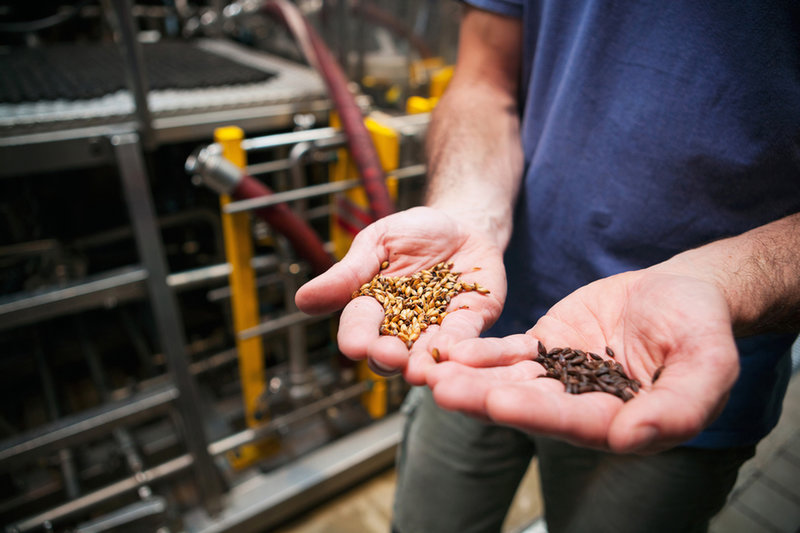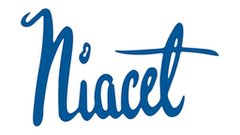About DSM
The world is changing and consumers’ tastes are changing with it. DSM’s food & beverage business is built around addressing these emerging and evolving trends, from gluten-free bread and beer; to plant based meat substitutes; to lactose-free milk; to sugar-reduced beverages. The foundation for our expertise comes from a 150-year heritage in biotechnology and fermentation - and it’s improving and evolving all the time.
Consumers today are asking for more from their beverages.
Consumers are looking for premium, sustainably-produced beverages with great taste, whether they are reaching for an organic fruit juice or a local craft beer. We help beverage producers capture the opportunities by producing more great tasting and efficiently produced beverages for everyone.
Our enzymes for fruit juice can increase yield, shorten production times, clarify juice, intensify juice color, and capture more healthy antioxidants in berry juices. We also offer natural beverage preservation solutions that extend shelf life without compromising taste. Our brewing enzymes help brewers to reduce cost, gain control of the conditioning process, improve yield, and create gluten-free varieties, all while producing high-quality, great-tasting beer.
Consumers increasingly pay attention to what goes into their beer!
1New DSM research, which surveyed 20,000 consumers across 20 countries to understand current and emerging consumer needs in the brewing space, found that people are increasingly interested in what goes into their beer. For instance,
- 54% of respondents reported being heavily influenced by ingredient claims, while 39% of people are looking for beer produced with locally sourced raw materials.
- Premium beer varieties, particularly those low in calories or gluten, also continue to rise in popularity, as consumers become more health-aware.
- Indeed, 65% of those surveyed said they are concerned about the impact beer consumption has on their waistline, while 52% find a gluten-free claim appealing.
- Hard seltzers are also gaining traction as a refreshing, yet sugar-free, antioxidant-rich and low-calorie drink that appeals to health-conscious consumers – from beer drinkers right through to those who enjoy wine, cider and spirits.

Consumers are expecting brands to change the way beer is produced and to meet changing preferences, brewers must find ways to lower the impact their processes have on the environment
DSM experts have observed a link between the trend for beer made with local ingredients and rising demand for more sustainable products. The convergence of these trends as they increasingly break into the mainstream brewing space is indicative of a consumer base that cares more and more about making sustainable purchasing choices. This suggests that consumers are expecting brands to change the way beer is produced and to meet changing preferences, brewers must find ways to lower the impact their processes have on the environment. The brewing industry also has a role to play in further promoting the link between using local ingredients and carbon footprint reductions.
What are the biggest challenges brewers face in today’s climate?
The biggest challenges brewers face in today’s climate are ensuring the sustainability and economic viability of operations. From optimizing the use of resources to overcoming raw material yield and quality issues, producers need to address a range of obstacles to secure the future of both their brand and the brewing industry, including:
- Energy and water use
- The yield and quality of crops
One of the more obvious impacts is on barley yield. It’s been known for centuries that yields of barley decline in periods of localized extreme drought and heat. What is striking is that scientific researchers are now predicting a much more global reduction of barley yield due to climate change: by as much as 17 percent in the coming years, depending on the severity of the conditions. This in turn could lead to supply shortages and price spikes. 2

Unique enzyme solutions for beer production remove brewers’ need for consistent high-quality malt by replacing it with barley or other raw materials like rice or cassava: A flexible, versatile – and less expensive - alternative.
Whether brewers choose to produce beer with barley, rice, sorghum, maize or other ingredients, enzymes can facilitate to fill the gap in alternative raw materials and unlock them for optimal brewing results.
3Sustainability is one of - if not the – key benefits of brewing with adjuncts.
The malting process for barley is extremely energy- and water-intensive. So using less of it, and increasing the ratio of adjuncts, can have a huge impact on reducing CO2 emissions. Brewing with 100% barley can reduce CO2 emissions by 20-22% (versus 100% malt beer) - that’s a significant number. Even using 40% barley instead of malt can reduce CO2 emissions by about 7 to 9%.
There are some other benefits, too. For example, brewing with barley instead of malt requires less land to produce the same amount of beer, as 1,15 tons of barley is required to produce 1 ton of malt and only 1,1 ton of unmalted barley is required when skipping malting to produce the same amount of beer produced with the ton of malt.

1DSM, brewing consumer insights report, Q3 2019.
References:
- www.who.int/mediacentre/factsheets/fs393/en
- Eklund T.The antimicrobial effect of dissociated and undissociated sorbic acid at different pH levels. J Appl Bacteriol. 1983 Jun;54(3):383-9.
- Sikkema,J.; J.A.M.de Bont; B.Poolman (1994) Interactions of cyclic hydrocarbons with biological membranes. J.Biol.Chem. 269: 8022 8028
Contact Information
DSM
DSM Food Specialties
Alexander Fleminglaan 1
2613 AX
Delft, The Netherlands

